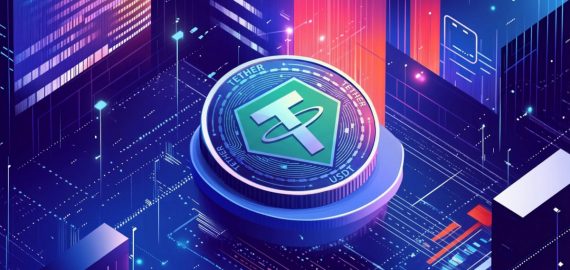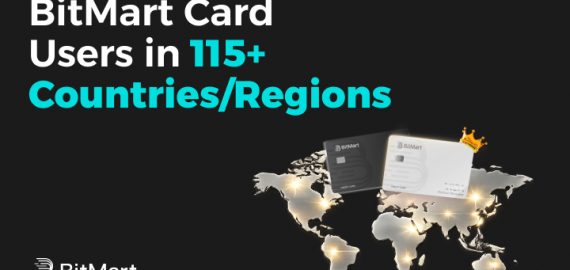Sign Protocol: Integrating Identity, Services, And Digital Assets Seamlessly


In Brief
Sign Protocol is building a unified, on-chain infrastructure for identity verification and asset distribution, aiming to support national governments, enterprises, and Web3 ecosystems.

Omni-chain attestation platform, Sign Protocol released an overview outlining its approach to addressing trust, identity, and asset verification in the evolving digital landscape. As digital systems continue to advance fast, traditional distinctions between identity, data, and assets are becoming increasingly blurred. The shift toward decentralized frameworks in Web3 is redistributing the concept of “trust” from centralized authorities to individual users. However, replicating elements such as real-world identity verification, compliant asset issuance, and regulatory adherence on-chain remains a complex challenge. Current limitations, including fragmented data systems, inconsistent standards, and high compliance costs, are restricting broader interoperability and regulatory alignment.
Sign Protocol proposes the development of a universally compatible trust infrastructure that can meet the needs of national governments, multinational enterprises, and Web3-native ecosystems. The protocol introduces a model for sovereign-grade identity, where official documents like passports or visas can be securely validated on-chain. This mechanism enables governments to provide digital services within existing regulatory frameworks. Additionally, the protocol features the TokenTable standard, which streamlines token issuance, vesting, and distribution processes through modular templates. This structure simplifies implementation for organizations while ensuring transparency and compliance.
In essence, Sign Protocol is working toward integrating identity and asset ownership into a unified on-chain framework. Its objective is to deliver a scalable, secure infrastructure that supports seamless interaction across sectors, enabling individuals, institutions, and governments to engage within a cohesive digital environment.
Project Overview: Addressing Key Challenges With Sign Protocol
Sign Protocol is currently engaged in several national-level digital infrastructure initiatives, with deployments already established in countries such as the United Arab Emirates, Thailand, and Sierra Leone. Its strategic roadmap includes expanding into over 20 additional jurisdictions, including regions that are emerging as centers of digital governance, such as Barbados and Singapore.
The protocol has seen growth in terms of product adoption. The number of credential templates within the Sign ecosystem has increased fast, while its TokenTable platform has facilitated the distribution of over $4 billion in assets across more than 40 million blockchain wallet addresses. This infrastructure now supports over 200 projects, including those associated with notable ecosystems such as Starknet, ZetaChain, and Notcoin.
Financial markets are beginning to acknowledge the project’s value, with investment participation from firms such as Sequoia Capital and funding rounds led by YZi Labs. The project reports $15 million in annual revenue, positioning it as one of the few platforms in the identity verification and token distribution sector with a functioning revenue model, underlining its competitiveness and potential for sustainable growth.
Sign is advancing the concept of a “supranational database” aimed at creating a globally accessible and auditable data layer using blockchain technology. This vision supports the development of programmable infrastructure for identity validation, token issuance logic, and secure data transmission. The goal is to support convergence between governance structures, economic systems, and identity frameworks within a unified on-chain environment.
At its core, Sign’s architecture is structured around two primary components: infrastructure for identity verification and systems for token distribution. These form the foundation for a standardized, programmable trust protocol that can be deployed across multiple blockchains. Designed to meet key Web3 requirements, this protocol aims to bridge on-chain and off-chain systems, offering a cohesive and secure base for global trust and value exchange.
Technical Architecture: Building The Core Infrastructure Of Sign
Through the integration of Sign Protocol and its associated tools—TokenTable, SignPass, and EthSign—the platform establishes a framework that interconnects on-chain identity, services, and assets. This infrastructure is intended to support the development of next-generation digital societies.
Sign Protocol is designed for high scalability and adaptable deployment, with support for cross-chain implementation and localized integration on sovereign blockchains to meet jurisdictional compliance needs. Off-chain data is backed by Arweave, offering redundancy and long-term durability, while SignScan serves as the indexing and credential verification layer, improving accessibility and efficiency in credential management.
The protocol accommodates both local smart contract interactions and remote deployment models, facilitating compatibility with identity sources from Web2 and Web3 environments. It incorporates asymmetric encryption and zero-knowledge proofs to enable secure identity verification without compromising user privacy, allowing individuals to access services without disclosing personal data.
TokenTable functions as a comprehensive asset distribution engine, featuring modules tailored to different release requirements. The Unlocker module delivers an entirely on-chain unlocking process suitable for linear and event-triggered schedules. The Merkle Distributor combines gas efficiency with adaptable distribution logic, while the Signature Distributor is optimized for high-throughput, centralized use cases that involve social and behavioral incentives.
SignPass enables customizable on-chain identity systems for use by public institutions and organizations. It supports scenarios such as digital governance, resource management, and user authentication. Reusable identities authenticated via SignPass can be utilized across multiple platforms and protocols, offering a recognized and authoritative identity standard for interacting within the ecosystem.
EthSign, one of the earliest offerings in the Sign suite, has evolved into a prominent platform for blockchain-based digital agreements. It ensures the immutability of contract records by storing them permanently on-chain, thereby reinforcing both legal validity and technical reliability in digital transactions between individuals, institutions, and enterprises.
The ecosystem is underpinned by the SIGN token, which adheres to the ERC-20 standard. With a capped supply of 10 billion tokens and an initial circulation ratio of 12%—including around 8.5% accessible for trading—the tokenomics are designed to ensure early-stage market stability while reserving a substantial portion for future governance and development initiatives.
The SIGN token plays several roles across the protocol. It serves as a resource utility token for protocol operations and deployment. Within the community, it enables staking and governance participation, empowering holders to influence protocol parameters and evolution proposals. Additionally, the token acts as a medium for aligning long-term value and direction across the Sign ecosystem.
From Capital To Community: Evolving From Leading Investment To Cultural Consensus Entity
Since its establishment, Sign has raised $32 million in funding, reflecting strong investor confidence in its technological innovation and long-term growth potential. Early-stage backing was provided by Sequoia Capital across both American and Asian markets, laying the groundwork for the project’s initial development and international reach. Follow-on investment rounds, led by YZi Labs, have supported continued platform expansion and technical advancement. This investment structure spans key global regions and highlights the project’s relevance in compliance alignment, market recognition, and enterprise-level adoption.
The Sign ecosystem has cultivated a global developer community centered around the Orange Dynasty initiative, fostering cultural coherence and collaborative engagement. Within the governance framework, SignPass functions as an on-chain identity credential, integrated into the DAO governance system to allow identity-based participation in proposals and decision-making. This approach supports the creation of a social network structured around authentication, interaction, and asset distribution, facilitating a new governance model linking users, protocols, and digital assets.
Throughout 2025, Sign intends to implement several strategically aligned product updates. The platform is preparing to expand its national-level implementations, supporting broader adoption of blockchain infrastructure within governmental systems and reinforcing its role in public-sector innovation. In the latter half of the year, attention will shift to mobile ecosystem integration, enabling the connection of identity, task execution, and asset distribution through a streamlined interface designed to boost user onboarding and ecosystem liquidity.
Later in the year, Sign also plans to launch the Sign Media Network, transitioning from a foundational identity and asset protocol into a broader infrastructure for content dissemination. This initiative supports on-chain content publishing and data sovereignty, offering creators new avenues for engagement and distribution within a decentralized framework.
Strategic development plans include the rollout of the Sovereign Layer2 solution, which will provide governments with customizable Rollup services that integrate identity and token infrastructure. This vision introduces the concept of a blockchain-based national infrastructure. In parallel, the release of the “Sign Stack” public infrastructure toolkit will continue, offering developers standardized tools and environments to accelerate Web3 application deployment and further consolidate the protocol’s role in shaping the next generation of decentralized services.
Disclaimer
In line with the Trust Project guidelines, please note that the information provided on this page is not intended to be and should not be interpreted as legal, tax, investment, financial, or any other form of advice. It is important to only invest what you can afford to lose and to seek independent financial advice if you have any doubts. For further information, we suggest referring to the terms and conditions as well as the help and support pages provided by the issuer or advertiser. MetaversePost is committed to accurate, unbiased reporting, but market conditions are subject to change without notice.
About The Author
Alisa, a dedicated journalist at the MPost, specializes in cryptocurrency, zero-knowledge proofs, investments, and the expansive realm of Web3. With a keen eye for emerging trends and technologies, she delivers comprehensive coverage to inform and engage readers in the ever-evolving landscape of digital finance.
More articles

Alisa, a dedicated journalist at the MPost, specializes in cryptocurrency, zero-knowledge proofs, investments, and the expansive realm of Web3. With a keen eye for emerging trends and technologies, she delivers comprehensive coverage to inform and engage readers in the ever-evolving landscape of digital finance.



















































